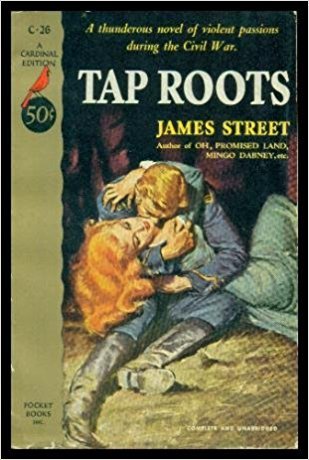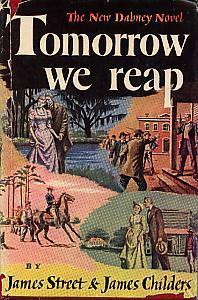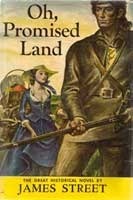Part of Series
The epic of the Arkansas, built in the wilderness by men who hauled her iron and guns hundreds of miles by ox wagons, is one of the most amazing and little-known dramas of history. She struck terror from Illinois to New Orleans and became a ship that men whispered about; a ghost ship whose guns kept blazing although there were no men aboard her. Mr. Street gives us a galaxy of characters in this book. Most of the action revolves around three Confederate sailors; Wyeth Woodward, gunner's mate, who hates war; Simeon St. Leger Granville, a British soldier of fortune whose lust for battle is exceeded only by his lust for drink, and Vespasian Gillivray, the lovable Cajan, a descendant of the Creeks of Mr. Street's Oh, Promised Land. The fourth member of a quartet you never will forget is Dolly—fat, cold, deadly. She is a nine-inch Dahlgren gun on whose breech is engraved By Valour and Arms. There also is Gar Rivers, an inspiring Negro, an artist of sorts who fought for a slave-owning people. In these pages you will meet Laurel MacKenzie, betrothed to Wyeth, and Morna (Dabney) Alexander, who wants the young sailor just to prove to herself that marriage has not dulled her charms. Tap Roots' readers will remember her and her melancholiac husband, Keith Alexander, a Southerner who fights for the Union. Keith is here, too, contemptuous as ever of his own life and the lives of others. Then there is Sharon Weatherford, a rooming-house keeper in Natchez-Under-the-Hill. Her love for Simeon St. Leger Granville apparently is a hopeless thing, and yet she, a social and racial outcast, meets every challenge, and triumphs. The story begins with the building of the Arkansas and ends with the fall of Vicksburg, which was to the South what Hastings was to England during the Norman conquest. The Union was saved in the West, but that theater has been neglected. Few Americans realize that the Battle of Franklin was bloodier than Gettysburg, that the Arkansas created more havoc than the Merrimac, and that Vicksburg held out for more than a year.
Author

From Wikipedia: James Howell Street (October 15, 1903 – September 28, 1954) was a U.S. journalist, minister, and writer of Southern historical novels. Street was born in Lumberton, Mississippi, in 1903. As a teenager, he began working as a journalist for newspapers in Laurel and Hattiesburg, Mississippi. At the age of 20, Street, born a Roman Catholic, decided to become a Baptist minister, attending Southwestern Baptist Theological Seminary and Howard College. Unsatisfied with his pastoral work after ministering stints in Missouri, Mississippi, and Alabama, Street returned to journalism in 1926. After briefly holding a position with the Pensacola, Florida Journal, Street joined the staff of the Associated Press. The AP position took him to New York, where he began freelance writing fiction. Hired away from the AP by the New York World-Telegram in 1937, Street sold a short story ("A Letter to the Editor") to Cosmopolitan magazine, which caught the eye of film producer David Selznick, who turned it into a hit film, Nothing Sacred. The Broadway musical, Hazel Flagg, was based on his short story, as well as the Dean Martin and Jerry Lewis-film Living It Up. His success allowed him to write full-time, and throughout the 1940s he worked on a five-novel series of historical fiction about the progress of the Dabney family through the 19th century. The Dabney pentology—Oh, Promised Land, Tap Roots, By Valor and Arms, Tomorrow We Reap, and Mingo Dabney—explored classic Southern issues of race and honor, and strongly characterized Street's struggle to reconcile his Southern heritage with his feelings about racial injustice. The series was a critical and popular success, with several of the books being made into feature films. Street modeled characters in his Dabney family saga on Sam Dale, Newt Knight and Greenwood LeFlore. Street also published two popular novels about boys and dogs, The Biscuit Eater and Good-bye, My Lady, both were turned into movies, and a set of semi-autobiographical novels about a Baptist minister, The Gauntlet and The High Calling, both were bought by Hollywood but never produced. Street's short stories and articles appeared regularly in Cosmopolitan, The Saturday Evening Post, Collier's and Holiday. Street died of a heart attack, in Chapel Hill, N.C., on September 28, 1954, at the age of 50.


